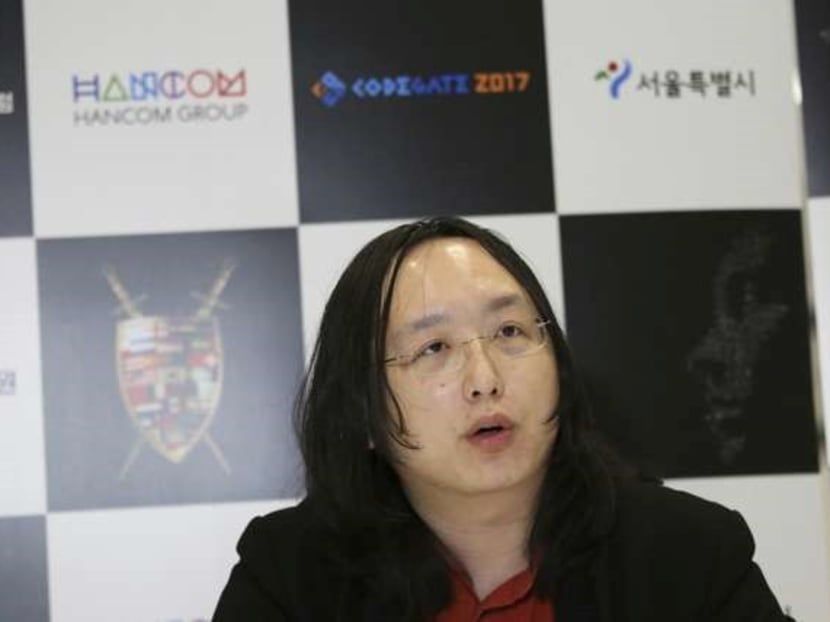‘Let them fail without incurring costs’: Taiwan tech minister’s industry-wide startup plan revealed
TAIPEI — A 36-year-old child prodigy hired to a senior government job last year is using free software, a remake of the sharing economy and a special internet infrastructure budget, to steer Taiwan’s world-renowned high-tech sector away from its reliance on hardware manufacturing as revenues thin.

Audrey Tang. Photo: SCMP
TAIPEI — A 36-year-old child prodigy hired to a senior government job last year is using free software, a remake of the sharing economy and a special internet infrastructure budget, to steer Taiwan’s world-renowned high-tech sector away from its reliance on hardware manufacturing as revenues thin.
High-tech contributes about one-fifth of the NT$519 billion (S$24 billion) Taiwan economy, but as consumer sentiments change and mainland China makes hardware at lower costs, returns have become slower for the likes of factories that make PCs or media tablets, on contract for foreign developers.
“It’s unhealthy to emphasise any one industry,” said Ms Audrey Tang, Taiwan’s digital minister.
“Stop seeing Taiwan as a closed world or a closed ecosystem and try to see it as more of a stage and then establish the necessary links.”
Semiconductors, a staple for Taiwan, might link to the hardware used in virtual reality and to the Internet of things, Ms Tang said.
The internet of things – use of smart devices to control ordinary appliances – will see compound annual growth of at least 20 per cent from 2015 to 2020, when business spending will reach US$267 billion (S$374 billion), Boston Consulting Group forecasts.
Global revenue from virtual and augmented reality will grow from less than US$20 billion this year to US$120 billion in 2020, American consultancy Digi-Capital says.
Ms Tang, hired in October, is pushing Taiwan toward those new tech sectors as a proponent of its 8-year Digital Nation Plan. The plan now in year one will include the build-up of a licensed communications system packed with information that anyone, but especially high-tech startups, can use for their own development.
“My concept for the economy is abundance,” Ms Tang said, speaking English that she picked up by spending time in Europe, the United States and online. “Get out of this scarcity thinking.”
For instance, the government might buy the content of a film produced in Taiwan. Then artificial intelligence and virtual reality can show it in multiple dimensions with the option of rotating it, the minister said.
About NT$46.1 billion in special digital infrastructure funds is planned to be spent over four years, subject to renewal, to establish this type of open content.
Content should be free for reference and helpful for startups, said Ms Tang – an advocate of unpaid, easily customised software such as the Firefox browser or the Google Android operating system for smartphones.
“Basically let them fail without incurring costs,” she said. “That’s how a start-up works.”
The Digital Nation Plan will build the tech economy to US$205.9 billion and put Taiwan among the top 10 spots in the world for information technology by 2025, the cabinet says on its website.
Companies operating in Taiwan for fewer than five years numbered 391,000 in 2010 and about 430,000 in 2015, according to Ministry of Economic Affairs figures. Start-ups with less than a year in business numbered 98,320 and they earned a combined NT$182.6 trillion in revenue.
Ms Tang’s office is working with telecom providers to make broadband a “human right” for everyone, including aboriginal villages, outlying islands and Taiwan’s high-speed rail system that lack it today.
The digital minister wants to retool Taiwan’s sharing economy to emphasise a free exchange of ideas and resources, across industries, rather than an expansion of app-enabled taxi and hotel services.
In this spirit, the economic affairs ministry holds a weekly panel discussion with one veteran company leader, one younger entrepreneur and an expert who explains how a big firm can digitise while small firms jump ahead. An artificial intelligence hand might counsel a camera lens-sharing start-up, for example.
“It’s taking something that works in one field and trying to apply it to a different one and see if it works,” Ms Tang said adding younger people are particularly keen.
“The tendency of the millennials is to trust strangers on the Internet, and this is in direct contrast with established business.”
Ms Tang wrote her first programme – a fractions game for her younger brother, at age 8. Armed with an IQ of more than 160, she dropped out of middle school at age 14 and never returned to formal education. Instead she founded a search engine and auction platform. Her company later received an investment from Intel, giving her what she calls “sufficient street credibility.”
By the age of 19, Ms Tang had worked in the Silicon Valley as an entrepreneur and held positions in technology companies. She was a Taiwan government consultant from December 2014 to June 15 on transparency and cyber-security initiatives.
Veterans of Taiwan’s tech industry applaud Ms Tang’s ideas but some are unsure how much more income they will bring to the field.
A government platform that matches start-ups and clients would follow a spirit of “coopetitition” but the competition element would stop companies from laying out information such as costs of services, said Mr Jamie Lin, founding partner of appWorks Ventures, a startup accelerator in Taipei.
A government-run database of ideas and services must also be open to all to avoid perception of preferences for certain companies, said Ms Tracy Tsai, a research VP with the Taipei-based personal technologies unit of Gartner. Previous government stimulus campaigns have been criticised for helping established hardware firms over upstarts.
“Whatever they do, they have to bring up trust,” Ms Tsai said. “The companies have to believe the government can do as it says and do it fairly.” SOUTH CHINA MORNING POST





